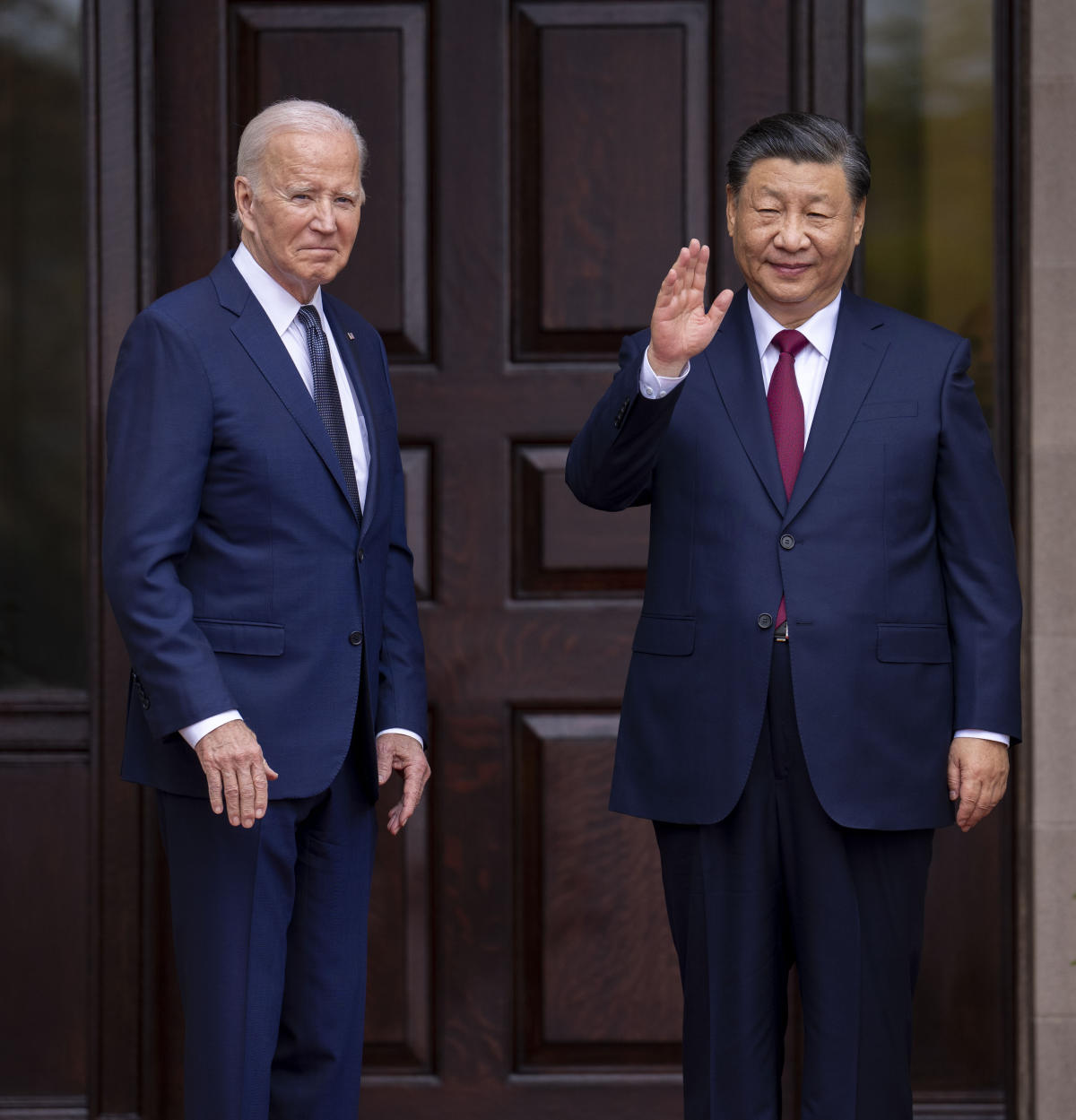WASHINGTON (AP) — President Joe Biden is focused on nurturing economic ties with Asia this week, even though he’s not signing trade deals at the regional summit in San Francisco.
This absence of trade deals reflects the state of U.S. politics, the changing global economy, and the Biden administration’s aspirations. American negotiators are making progress in securing agreements with 13 other countries as part of the Indo-Pacific Economic Framework (IPEF). The use of the word “framework” allows Biden to sidestep congressional approval in reaching IPEF agreements, according to Robert Holleyman, a former U.S. trade representative.
Many U.S. voters harbor negative perceptions of trade deals and their role in industrial job losses, a sentiment that lingers from the 2016 election and is projected to resonate through the upcoming 2024 race. The IPEF aims to address certain issues such as supply chains and climate change that have been outside the purview of traditional trade agreements, potentially partially filling this void while circumventing domestic politics.
WHAT IS IPEF?
Biden introduced IPEF in May 2022 during a trip to Tokyo, outlining its focus on supply chains, climate, anti-corruption, and trade. Unlike traditional trade deals, IPEF doesn’t center around market access expansion or penalties for unfair practices.
While the U.S. Trade Representative Katherine Tai is overseeing the trade pillar, Commerce Secretary Gina Raimondo is responsible for the other three pillars. While the U.S. and its partners are poised to announce agreements on supply chains, climate, and anti-corruption, negotiations over aspects of the trade component are still ongoing.
WHICH COUNTRIES ARE IN IPEF
Besides the U.S., the 13 members represent 40% of the global gross domestic product. Other members include Australia, Brunei, Fiji, India, Indonesia, Japan, South Korea, Malaysia, New Zealand, Philippines, Singapore, Thailand, and Vietnam.
WHAT IS IN THE AGREEMENTS
According to Matthew Goodman, the White House has indicated the terms of the various agreements, with negotiations taking place separately for each pillar. While some language on agriculture and enhancing trade relationships is expected in the trade component, labor, environmental standards, and rules for digital companies are still under negotiation.
Senator Sherrod Brown has expressed objections to the trade pillar, citing concerns about worker protections, prompting the Biden administration to refrain from moving forward with an agreement on this issue, although agreements on the other three pillars are anticipated.
WHY TRADE DEALS ARE UNPOPULAR
Voters attribute past trade deals to the loss of factory jobs, a sentiment shared by the Biden administration. The rejection of trade pacts in the 2016 election by both candidates underscores this sentiment. Additionally, the pandemic further exposed fragile supply chains overly reliant on China, emphasizing the need for alternative manufacturing solutions.
Katherine Tai criticized past trade deals in a June speech, highlighting their contribution to various issues. Trade deals usually take years to negotiate and finalize across different presidential administrations, but IPEF is moving at a considerably swifter pace.


